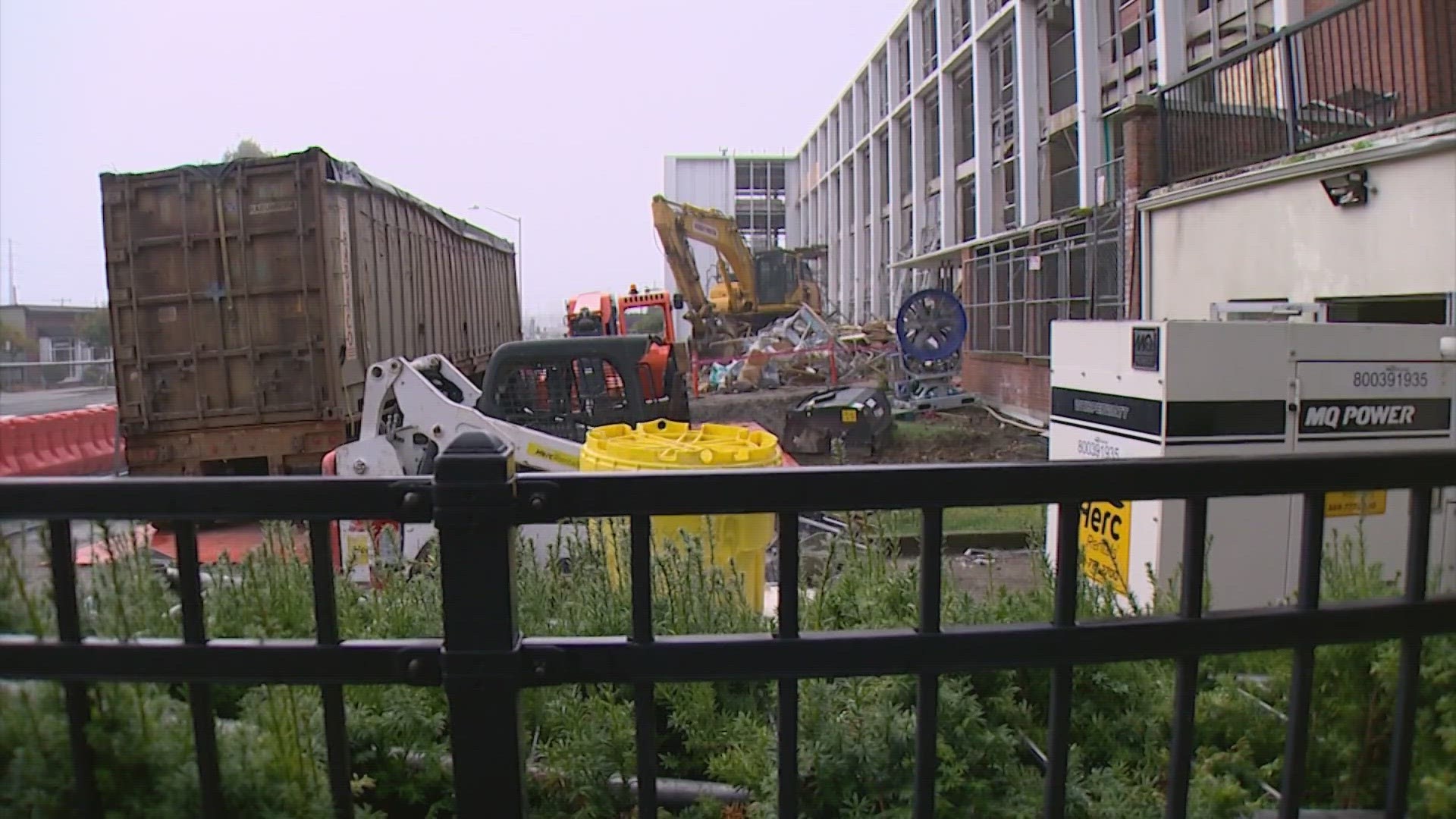EVERETT, Wash — From the rubble of an outdated, crumbling mental health center in downtown Everett will soon rise a facility many believe will help transform the city, getting people with drug and behavioral issues off the streets and into the help they need.
"It can be daunting to ask for help. We want to make sure there are no extra barriers in the way. We want people to feel like this is a safe place, that this is a welcoming place," says Compass Health Chief Operating Officer Stacey Alles.
The 72,000-square-foot building replaces a 103-year-old facility that was designed as a nursing home.
It wasn't equipped to handle the mental health crisis Snohomish County is currently experiencing.
The Broadway building had broken bathrooms, makeshift heating systems and cold, windowless exam rooms.
The new center will be bright, airy and will double the number of beds available in Everett from 16 to 32. It's expected to treat 1,500 people per year -- some 30,000 patient interactions.
"We know these issues have always been with us, but people are talking more about them and are willing to get help more often," says Alles. "We want to make sure when people ask for help we're able to deliver it."
The project is the second phase of Compass Health's plan also added 82 supportive housing units right next door. Phase 3 is expected to bring a primary care clinic nearby along with 60 additional housing units.
The new treatment facility will be similar to one that recently opened in Whatcom County where people in crisis can get help immediately. Clients can be put on a 12-hour involuntary hold while they sober up or get medications to stabilize them.
Half of the 32 beds in Everett will be for involuntary commitments -- taking pressure off of police, jails and emergency rooms.
"We want to be that first stop where first responders can bring folks directly to us, drop off, and quickly get back to their jobs. Then they can let us do our jobs in providing great care to those community members," says Compass Health CEO Tom Sebastian.
A 2018 Washington state report found 462 additional mental health crisis beds were needed statewide. Since then only about 100 more have been added, according to Disability Rights Washington.
If all goes as planned, the new center will open in the spring of 2025.

